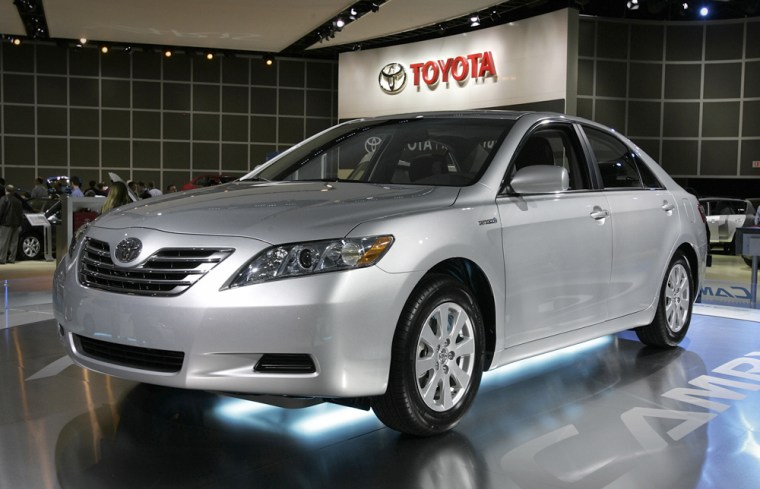As General Motors is cutting salaries, benefits and its dividend to shore up its losses, rival Toyota is on track to post record profits for its fiscal year. On Tuesday, the Japanese automaker reported a 34 percent increase in third-quarter profits as its global sales jumped 15 percent.
So what’s behind the behind the wheel of Toyota’s success?
Along with its reputation for building a quality vehicle, Toyota's keys to success include a flexibility its U.S. rivals don't have and its underdog status in markets where it has no place to go but up.
Its Camry is the top selling car in the U.S. and its hybrids are among the hottest things on wheels, but Automotive News editor Ed Lapham says Toyota's success is driven by a long-held vision at the company.
“It’s providing quality products for the consumers to do so in a way that not only doesn't harm the environment, doesn’t harm the universe, but makes the company a good corporate citizen,” says Lapham.
Toyota’s reputation for quality helps to build its business and its bottom line.
Deutsche Bank analyst Rod Lache estimates Toyota charges an average of $4,000 more per vehicle than GM or Ford. “When you can price much higher that means you can put a lot more content into the vehicles and can reinforce that brand equity by putting out exceptional products,” Lache says.
Along with quality, its success with hybrids and growing share of the U.S. market for SUVs, Toyota is also increasing its slice of the U.S. market for cars and light trucks, where its now third behind GM and Ford.
“Toyota is doing something its U.S. rivals can't -- building plants rather than closing them,” says Global Insight analyst George Magliano. “That is going to broaden (Toyota’s) regional reach in the United States and in North America. And that is a big advantage right now.”
Toyota's success goes well beyond the borders of the world's largest car market. It is the top automaker in the second largest market, Japan, and is making big inroads in China, now the third largest auto market in the world. And Toyota's finding a growing audience in Europe, where its brands were once snubbed.
As a result, Toyota is nipping at the heels of the GM as the global leader in sales of cars and light trucks -– a title some say Toyota could grab this year, or next.
Toyota's other advantage is that it is not saddled with the huge legacy costs the U.S. automakers carry, and has proven if you build a quality product people will buy it. While analysts say U.S. automakers have narrowed the quality gap, the reputation gap remains wide and Toyota continues to take advantage of that.
